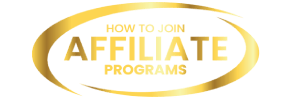OpenAI just stepped into the browser wars in a way that feels both familiar and oddly disruptive. On October 21st they unveiled ChatGPT Atlas, an AI-first web browser built on Chromium that reframes browsing around a ChatGPT-style text box instead of the traditional address bar. It’s a clear challenge to Chrome’s massive user base and, for affiliate marketers, a development worth watching closely.
What Atlas looks like and how it behaves
Atlas opens with a prompt. You type a question, paste a URL, or describe what you want and the browser replies. It can search open tabs and your browsing history, or pull answers from across the web to give a consolidated response. It’s not a thin wrapper over Chrome—OpenAI reimagined the flow around conversation rather than navigation. It sounds neat. It also raises questions about habit, discoverability, and where users expect to land when they intend to buy something.
Agent Mode is Atlas’s headline feature. It lets ChatGPT complete tasks for you: fill out forms, compare products, manage several tabs at once. Pretty handy for busy people. But there’s a catch: most of the advanced functionality sits behind ChatGPT Plus and Pro subscriptions. So the most powerful parts are paywalled, which tells you a lot about OpenAI’s monetisation thinking.
Memory, privacy, and the awkward middle ground
Atlas remembers what you browse to personalise search and answers. Those memories are visible and manageable, which feels like the right move. You can clear history or use incognito, and OpenAI says browsed content isn’t used to train its models. Still, memory in a browser is a big privacy trade-off. How comfortable will users be with a browser that remembers and interprets their activity, even with controls in place? Good question, and likely a personal judgment call.
There’s also parity with parental controls: settings you apply in ChatGPT carry over to Atlas. That’s practical. It’s also a reminder that OpenAI is designing Atlas not as an isolated toy, but as an integrated product in its wider ecosystem.
What this means for affiliate marketers
For affiliates, Atlas is both opportunity and threat. OpenAI already introduced Instant Checkout inside ChatGPT, which lets people buy without leaving the interface. Atlas follows that logic—intercept intent early and make transactions frictionless. That could shrink the window where affiliates earn clicks and credit.
Oddly, Atlas appears to rely on Google Search for built-in results, even though it’s pitched as a Chrome challenger. At the same time a persistent “Ask ChatGPT” button can access page contents so users can query what they see. Imagine a user comparing products directly through an AI assistant while never visiting review pages in the usual way. Attribution could break. Tracking could get messy. Affiliates will need to rethink where value is captured in the funnel.
Market pushback and realism
There was a moment of market shock—Alphabet’s stock dipped after the announcement—but investors soon recalibrated when OpenAI demonstrated Atlas live. The recovery signals something important: launching a browser against Chrome is one thing, dislodging Chrome is another entirely. Atlas faces real hurdles: limited platform rollout, uneven feature performance, and some sites blocking OpenAI services. Those aren’t small problems. They’re the kind that demand patience and steady iteration.
Bigger picture: data, ads, and strategy
OpenAI is chasing more than users. A browser gives it control over the browsing experience and a clearer path to monetise—think advertising, data-driven features, commerce hooks. Google’s Chrome has been central to its ad dominance; stealing even a sliver of that ecosystem would matter to OpenAI’s bottom line. Whether Atlas can carve out that slice remains uncertain, but the intent is obvious.
If you work in affiliate marketing, here’s the bottom line: adapt. Start testing conversational touchpoints, think beyond click-based attribution, and monitor how Atlas and similar AI-first browsers change where and how purchases start. This won’t replace Chrome overnight, but it could create new commerce pathways that bypass traditional tracking.
What do you think—threat or opportunity? Leave a comment and share how you’d adjust your affiliate setup if Atlas becomes mainstream. Follow us on Facebook, Twitter, and Pinterest for ongoing coverage and practical tips as this story unfolds.
Gap Inc. unifies creator affiliate program across brands — here’s what it means for you.
Sources:
- www.theguardian.com/technology/2025/oct/21/openai-chatgpt-web-browser-atlas
- www.affiversemedia.com/openai-takes-aim-at-google-with-chatgpt-atlas-browser-launch/

Hello folk,
I’m here to provide you with tips, tricks, and guidance on how to join affiliate programs and monetize your sites or social media accounts. On the right of the site, you can find a list of categories. Just click on those that interest you and see the affiliate programs available. Join those that fit with your writing expertise and your target audience. If you like my posts, please give me a like here:
Facebook, X (Twitter), Instagram, Pinterest, Website, Contact us



[…] OpenAI’s ChatGPT Atlas browser challenges Chrome—here’s why affiliate marketers should pay attention. […]